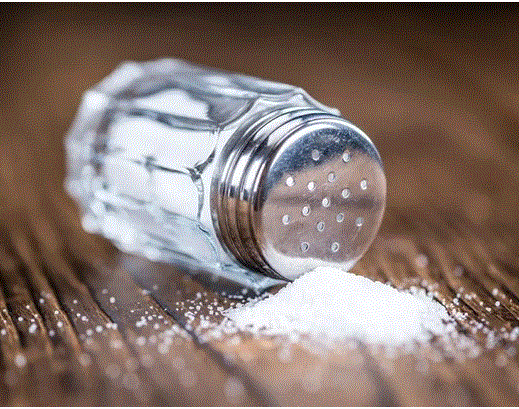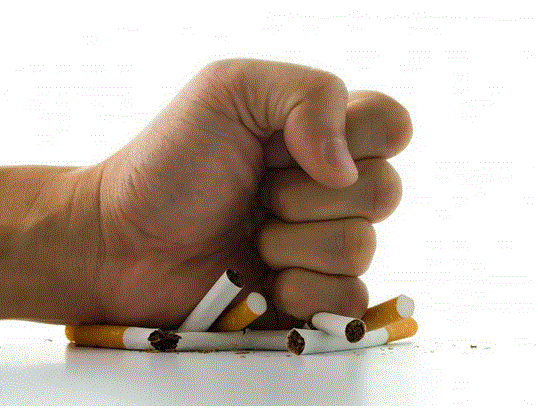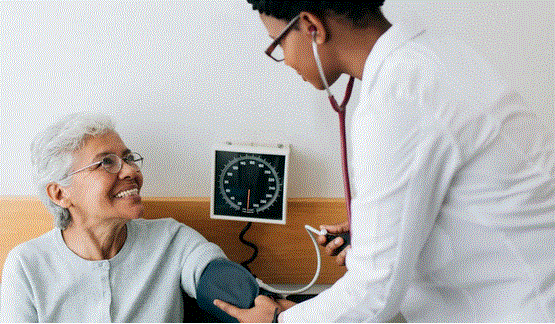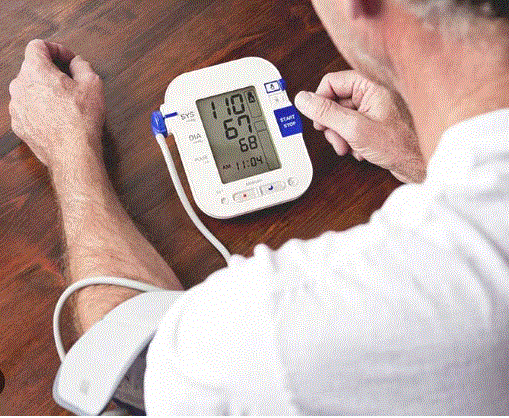You may be wondering if you need to take medication to lower your blood pressure if you’ve been diagnosed with hypertension. The treatment of hypertension is complicated, but lifestyle choices play a crucial role. Healthy lifestyle choices to lower blood pressure may delay or even eliminate the need for medication.
Here are some ways to improve your lifestyle and reduce your blood pressure.
Lose extra pounds and watch your waistline

When people gain weight, their blood pressure usually goes up. Hypertension is exacerbated by sleep apnea, which is a condition brought on by being overweight.
One of the best ways to manage blood pressure is to lose weight. Losing even a modest amount of weight can help lower blood pressure in those who are overweight or obese. Each kilogram (approximately 2.2 pounds) of weight decreased is associated with a potential 1 mm Hg drop in blood pressure.
The size of one’s waistline is also significant. Having extra weight around the middle might lead to hypertension.
In a nutshell:
If a man’s waistline is more than 40 inches (102 cm), he is at risk.
If a woman’s waistline is more than 35 inches (89 cm), she is at danger.
These figures are not uniform across cultures. Determine your ideal waist size by inquiring with your doctor.
Keep a regular exercise routine

High blood pressure can be lowered by roughly 5 to 8 mm Hg with regular physical activity. Maintaining an exercise routine is crucial for preventing a return to high blood pressure. Try to get at least 30 minutes of moderate exercise every day.
Regular exercise has been shown to prevent mild hypertension from progressing to full-blown hypertension. Hypertensive patients can reduce their risk of cardiovascular disease by exercising regularly.
Walking, jogging, cycling, swimming, and even dancing are all examples of aerobic exercise. Interval exercise at a high intensity is another option. This form of training consists of alternating times of high intensity with rest periods.
The blood pressure-lowering effects of strength exercise are twofold. Try to do some sort of strength training at least twice a week. Consult your doctor before starting any new workout routine.
Maintain a nutritious diet

A diet low in saturated fat and cholesterol and high in whole grains, fruits, vegetables, and low-fat dairy products can reduce high blood pressure by as much as 11 mm Hg. The Dietary Approaches to Stop Hypertension (DASH) and the Mediterranean diets are two examples of eating programs that can help keep blood pressure in check.
Potassium in the diet helps mitigate sodium’s hypertensive effects. Foods, such fruits and vegetables, are preferable over supplements as the finest sources of potassium. Targeting 3,500–5,000 mg daily has the potential to reduce blood pressure by 4–5 mm Hg. If you’re not sure how much potassium you should be eating, talk to your doctor.
Cut back on your sodium (salt) intake.

Lowering high blood pressure by just 5 or 6 millimeters of mercury is beneficial to heart health.
Different populations respond differently to sodium’s impact on blood pressure. Keep your daily salt intake to 2,300 mg or less. However, most adults should consume less than 1,500 milligrams of sodium per day.
In order to lower salt intake:
Check the labels before you eat. Try to find low-sodium alternatives to your favorite foods and drinks.
Consume less packaged meals. Naturally, foods contain very little sodium. The majority of salt is added to processed foods.
Leave out the salt. Add flavor to your food with fresh herbs and spices.
Cook. The sodium content of food can be managed through cooking.
Limit alcohol

Blood pressure can be lowered by roughly 4 mm Hg if men and women both stick to drinking fewer than one drink each day. Twelve ounces of beer, five ounces of wine, or one and a half ounces of 80 proof liquor all equal one drink.
However, even one drink can increase blood pressure by a few points. The effectiveness of blood pressure drugs may also be diminished.
Stop smoking

Hypertension is a direct result of smoking. When you quit smoking, your blood pressure drops. It can also improve general health and lower the probability of developing cardiovascular disease, both of which can add years to one’s lifespan.
Get a good night’s sleep

Hypertension can be exacerbated by chronic sleep deprivation, defined as an average of less than six hours of sleep per night. Sleep apnea, restless leg syndrome, and insomnia are just a few of the conditions that can make it difficult to get to sleep or stay asleep.
If you frequently experience sleeplessness, it’s important to discuss this with your doctor. Finding the root of the problem and fixing it can help you sleep better. Follow these easy steps to achieve better sleep if you don’t suffer from sleep apnea or restless leg syndrome.
Maintain a regular bedtime routine. Maintain a regular sleep/wake schedule. Maintain a consistent weeknight and weekend routine.
Make the room more relaxing. This necessitates a quiet, dark, and cool environment in which to sleep. Take an hour before bedtime to do something soothing. A warm bath or some yoga could be examples of this. Stay away from sources of artificial light like televisions and computers.
Mind what you put into your body. Neither go to bed ravenous nor bloated. Avoid eating a heavy dinner right before bed. Avoid or reduce your intake of nicotine, caffeine, and alcohol in the hours before night.
Avoid taking long sleeps. Those who benefit from daytime snoozes may discover better nightly sleep by restricting naps to 30 minutes in the morning.
Reduce stress

Emotional tension that lasts a long time can raise blood pressure. Stress reduction techniques may be able to lower blood pressure, however more study is needed to confirm this.
Still, it’s a good idea to identify the sources of your stress, whether it’s your job, your family, your money, or your health, and focus on alleviating those issues. What about this?
Don’t put undue pressure on yourself. Set goals for the day and stick to your schedule. Just say “no” more often. Make sure you give yourself adequate time to accomplish everything.
Pay attention to the things you can change and formulate a strategy to address them. Seek out a supervisor if you’re having trouble on the job. Try to work out differences with your partner or children.
Prevent anything that can cause you tension. If you find that driving during rush hour increases your stress level, perhaps trying taking public transit instead. If at all possible, stay away from stress-inducing persons.
Get some rest and unwind. Make sure you’re giving yourself time every day to meditate. Include pleasurable pursuits like walking, cooking, and volunteering into your schedule.
Express your appreciation. Stress levels can be lowered by showing gratitude to others.
Keep an eye on your blood pressure at home and see your doctor often.

Checking your blood pressure at home can be helpful. It can verify the efficacy of your treatment and encourage further progress.
You can get a blood pressure monitor for your home without a doctor’s order. Before beginning home monitoring, consult with your healthcare professional.
Maintaining a healthy blood pressure reading also requires routine doctor’s appointments. Ask your doctor how often you should check your blood pressure if you have it under control. You may only be able to check it once a day at most.
Seek Help

Having loved ones who will always have your back is crucial to your well-being. They might suggest self-care measures, like starting an exercise routine or going to the doctor more often, or they might even drive you there.
Join a support group if you discover you need extra help beyond what you can get from friends and family. This could put you in touch with people who can help you feel better about yourself and your situation, as well as give you useful advice for managing your health issues.
Conclusion
Blood pressure lower than 120/80 mm Hg is considered normal. Blood pressure that’s 130/80 mm Hg or more is considered high.
If your numbers are above normal but under 130/80 mm Hg, you fall into the category of elevated blood pressure. This means you’re at risk of developing high blood pressure.
The good news about elevated blood pressure is that you can make changes to significantly reduce your numbers and lower your risk — without requiring medications.
